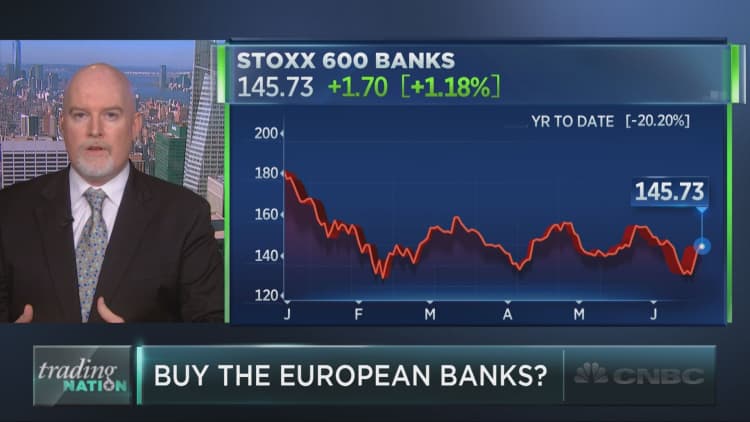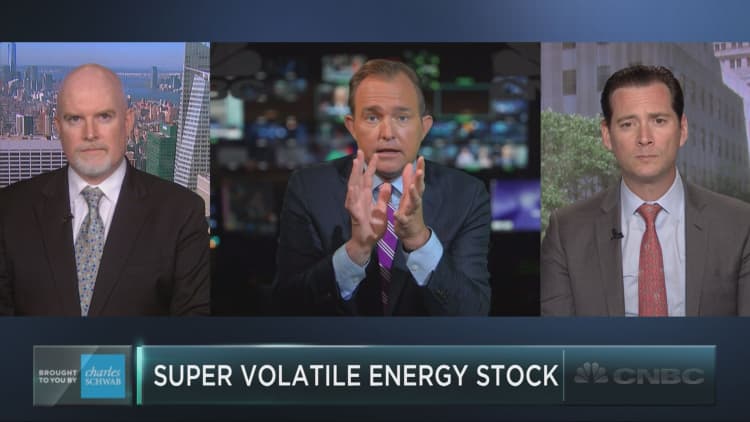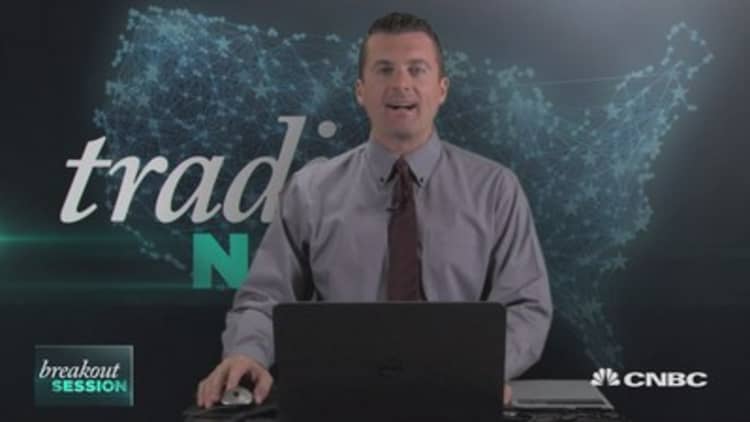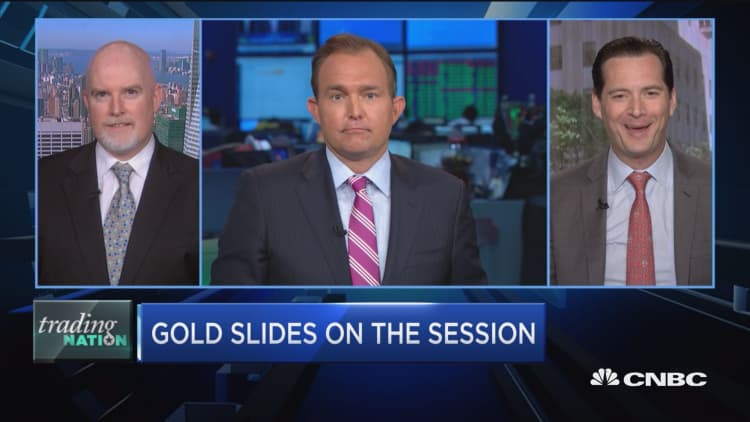



The hammer has come down on European banks in recent months amid stagnant growth, low (and frequently negative) interest rates and concern over the upcoming Brexit vote. But Rich Ross, head of technical analysis at Evercore ISI, believes investors shouldn't throw out Europe's banks from their trading toolbox just yet.
"We have a triple bottom on the weekly chart with a bullish hammer or exhaustive weekly reversal in the short term — that's a compelling setup," Ross said Tuesday on CNBC's "Trading Nation." "If the chips fall our way on Thursday, Friday, you have the catalyst to unlock what should be a nice setup here for a short- to intermediate-term trade in the banks."
The bullish hammer describes a trend on a stock's candlestick chart that is thought to signal a reversal from a downtrend. The name comes from the candle marking the period recording the reversal resembling a hammer.
European banks did see gains this week, bouncing back from the multiyear lows hit Thursday. Deutsche Bank, for example, has rebounded from record lows in the past week along with Credit Suisse, which hit a 27-year low in February.
However, Harvest Volatility Management partner Dennis Davitt is more doubtful of the European banks. Davitt believes that the Brexit side will pull through and potentially throw a wrench in the banks' recovery, especially given that these stocks are richly valued even after years of poor performance
"This index trades on, depending on what currency you use, 20 to 30 P/E," he said, referring to the common price-earnings metric. "If you look at Goldman Sachs, JPMorgan, Bank of America, they all trade on 10 P/E. Our stocks also have a 2 percent dividend yield, the yield is 5 percent on this European bank index. So the dividends are too high, they'll probably have to come down."
"They're not earning enough money and I don't see enough vision heading into the future about what the answer's going to be to rebuild their business and with Brexit, the European Union's a question," he added. "So I don't know where the bottom is on European stocks."
Meanwhile, Davitt believes that U.S. stocks could be attractive in the wake of a post-Brexit sell-off. He also pointed out that U.S. investors could see buying opportunities in the event of a Brexit.
"I think you'll see the Brexit vote go through ... and I think that will be a great buying opportunity," he said. "I think overnight, people are going to wake up in the morning and the world is not going to completely end."





